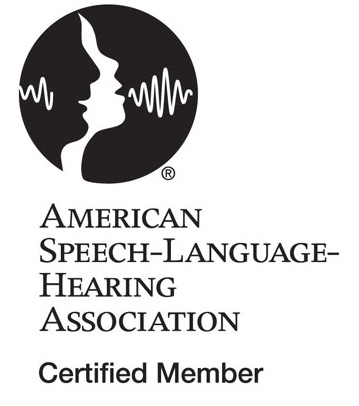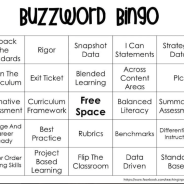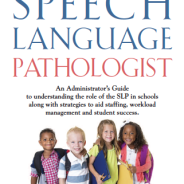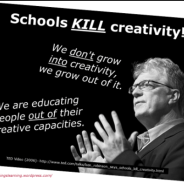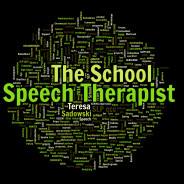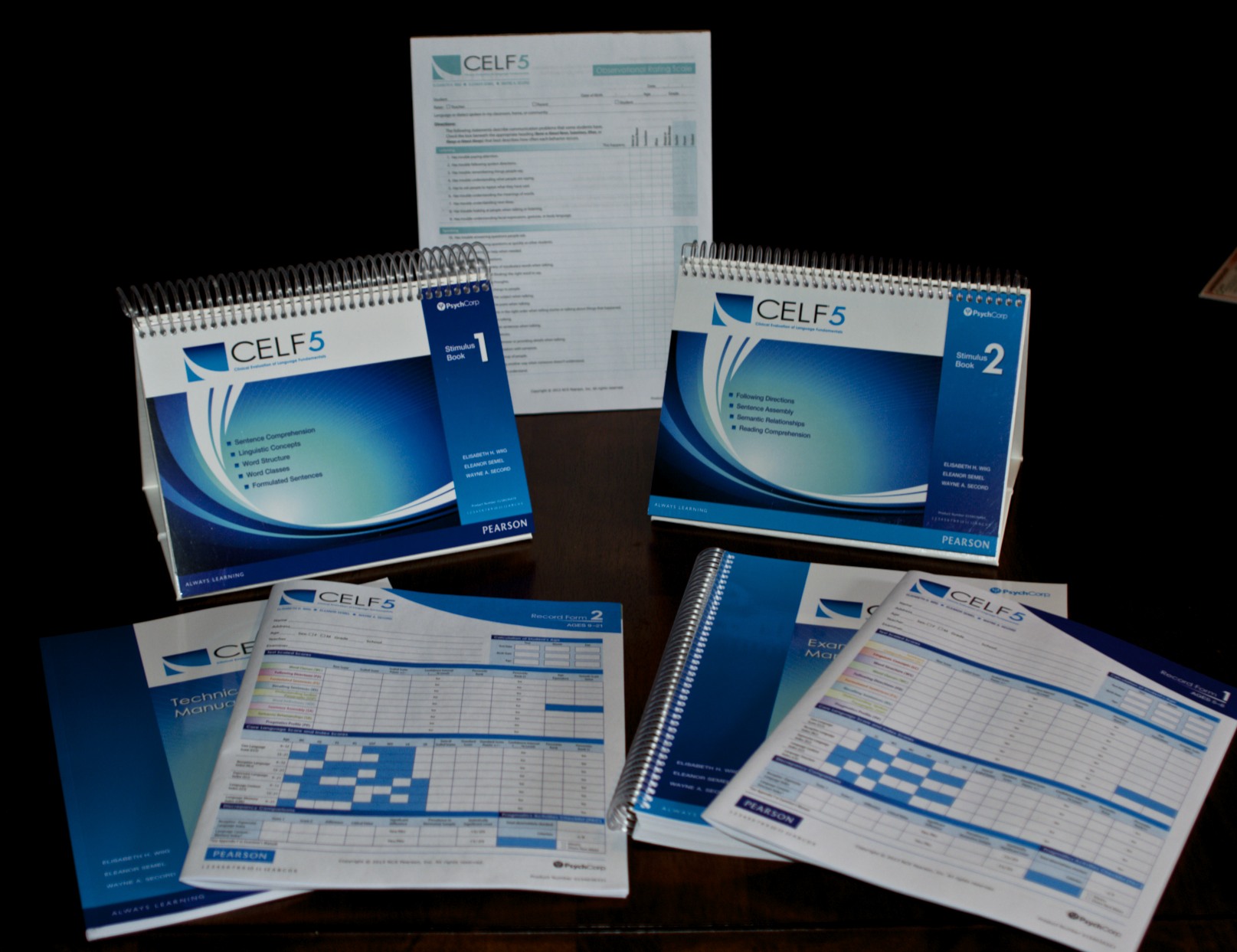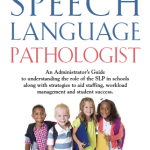Administrators: Know Your SLP’s
The biggest mistake administrators make is not getting to know their professionals. Often based on the decisions you make, things you say in meetings or even off handed comments you make it is clear to Speech Language Pathologists that you have no idea what we do, how knowledgeable we are, the resources we need to do their job better or even areas we address. When making big decisions especially those that involve procedure get your staff involved. You might be surprised at what your staff can offer. Teachers and other professional staff such as SLP’s can often be a feather in your cap if you listen to them rather than immediately disagree with them.
Learn the roll of every staff member and professional in your building or school. You never know when someone might have special training or experience to get you through a rough situation. Listen to what your staff has to say even if it’s an opinion. Successful administrators and school boards cannot have a myopic point of view. I’ve seen this happen and it does not create a strong, successful school system.
SLP’s are extremely knowledgeable. Our expertise goes beyond articulation therapy. We have training that goes way beyond academics. We know how the brain and body function together. We can pick out specific difficulties in children that can make life long differences if not remediated. We know about auditory development (not just hearing) and what happens to students who have difficulty with auditory processing, discrimination etc. We know immediately when your school system has a poor phonics program. We work on language development with severely autistic children, children with non-verbal learning disabilities and everything in-between. We work with children who have specific learning disabilities with average cognitive skills and those children who are severely learning impaired with low cognitive skills. Unless you’ve studied higher level language development you don’t have a clue it’s missing until it is almost too late. This list only hits the tip of the iceberg. I could go one and on ….. but I think you get the point.
Get to know you SLP’s and other professionals. Ask the questions and listen to them. It will only make you a better administrator.
Teresa
Speech Language consultants and school contracts
One of the most challenging things about promoting a niche book is how to get it into the hands of the people the book is meant for. I’m sure most of my book sales have been to SLPs who hopefully share it with their administrators or at least find it supportive.
A couple of weeks ago I received a message on Facebook from a consulting service, mentioning that they purchased a couple of my books. The purpose of their purchase was to give the books to school administrators. The information I provided in the book not only explained the role of the SLP in schools, it helped outline and justify time needed to properly service the schools they contract with. I was blown away and thrilled. I had not even thought of this as a use for my book The Speech Language Pathologist, An Administrator’s Guide to understanding the role of the SLP in schools along with strategies to aid staffing, workload management and student success.
Where I live most schools provide their own staff to service Speech and Language students. Occupational therapy and physical therapy are more likely to be contracted out because they service fewer students. However, there are a few schools in my area that contract out to hospitals and agencies. I do believe this practice is seen more often in urban areas or areas where SLPs are hard to find.
Agencies who contract to schools, probably have to maintain a delicate balance with schools to develop and maintain contracts. School administrators in most situations probably base their needs on the time written into the IEPs or number of students. The problem with this is that an SLPs workload far exceeds the number of hours spent on direct service.
The School Speech Language Pathologist, An Administrator’s Guide to understanding the role of the SLP in schools along with strategies to aid staffing, workload management and student success, is organized to first explain the role of the SLP, what areas we service and who we might service. Then the book goes on to explain the workload tasks involved, time needed to complete workload tasks and variables that may increase both direct services and workload tasks.
If you are a speech and language consulting service looking for a guideline you can offer schools, this book might be right for you. Please take a look at reviews on Amazon or read excerpts on my publisher’s site, Booklocker.
Teresa
Caseload and Workload article review
I found what I think is a fairly new article on ASHA focusing on Caseload and Workload. The article makes a fair attempt at explaining workload vs. caseload. There are a few points I would disagree with in the article but for the most part it does a good job of explaining that some students just require more man hours than others based on their disability.
This is an article obviously written for school administrators, yet I doubt many administrators have even taken a look. The article is a little muddy in the middle on how to determine a workload analysis. But at least it brings up the topic. I don’t feel a workload analysis has to be that complicated. However, I guess even administrators have to show their data.
Caseload and Workload also presents several alternative therapy models. Again the explanation of the models is a little unclear even with examples. I think alternative scheduling approaches are good to consider as long as direct therapy is not compromised. As we all know larger groups and in class services does not often provide language disabled students with what they need to become more efficient. It is also important to note that alternative scheduling approaches may work in one community and not another, totally dependent on need, school schedule, parental influence and flexibility of administration.
On page two the article talks about how a higher caseload impacts intervention. This is not something we’re really able to advocate for in schools. I am glad ASHA is opening the door on that.
This article didn’t hit all the topics and factors that impact workload but ASHA is getting closer to the real problems. Workload and Caseload is probably written for SLPs to either implement on their own or to share with administrators. It is a good start and many of the ideas go along with what I’ve covered in my book The School Speech Language Pathologist, An Administrator’s Guide to understanding the role of the SLP in schools along with strategies to aid staffing, workload management and student success. Since part of the source for the article was the ASHA 2014 Schools Survey, I imagine that many SLP’s find workload a significant issue since most schools focus almost solely on caseload numbers/hours of direct service.
Is your school doing anything unique to manage workload?
Side note: The article states “the SLPs first responsibility is to provide educational services on his or her caseload”…It goes along with ASHA position on CCSS. I’m going to disagree with that till the day I die. I am a therapist not a teacher. For at least 20 of my 30 years as an SLP my job was to teach underlying language skills so students could access the curriculum and use language efficiently. All of a sudden the rules changed and we have to create goals based on curriculum standards not language development. Which means therapists in private practice are servicing students differently than we are. Not to mention our testing is not usually grade leveled nor are our materials. That’s my rant for the day
The School SLP-book reviews
Last April I introduced my first book The School Speech Language Pathologist, An administrators guide to understanding the role of the SLP in schools along with strategies to aid staffing, workload management and student success. It has been a lot of fun working on book promotion and I’ve received almost 100% positive feedback from other SLPs. Several SLPs have mentioned that they have good enough relationships with the administrators to share the book. Yeah! Two SLP’s reported that their administrators asked to peek at the book (double Yeah!).
Two SLP bloggers have been kind enough to highlight my book on their blogs. I want to share their perspectives with you. Both of these blogs are very professional and interesting so take a peek around their sites while you’re there.
The first review was written by SLP Darla Gardner: Ms. Gardenia’s Speech Room
The second review was written by SLP Mandi Schaumburg: Panda Speech Therapy
The School SLP can be purchased through a number of sites including AMAZON (see link on this page), Booklocker (my publisher) and Barnes and Noble
Thanks to both Darla and Mandi for taking the time to The School SLP. Any ideas on how to get this book into the hands of administrators is greatly appreciated.
Concerts: Don’t forget your ear plugs
After taking a little bit of a hiatus from blogging due to vacation it is really hard to get started again. I lugged my computer 3000 miles with the hopes that I would get some writing and book promotion done but that didn’t happen. Since school got out I’ve jotted down several ideas for articles but never quite found the time or passion to develop them. Well, it’s time to get back on track.
This past weekend I attended the first concert I’ve been to in over two years. It was some old rockers but it was still loud. Ear protection did not even dawn on me until the break between bands where next to the beer line was the table selling ear plugs. At that point I flashed to the generic package of disposal ear plugs purchased after the last concert two years ago sitting in a drawer at home.
As an SLP I’m embarrassed by the fact that I didn’t even think of ear plugs until I saw them being sold. I gladly forked out the $15 dollars and figure if I liked them I could at least get a short blog post written about them. And of course protect my hearing.
The brand being sold was ETY Plugs from Etymotic Research. I wish I had another brand to compare during the concert but I was fairly impressed with the sound quality when the ETY plugs were in. How can I describe it……It was more than just muffling the sound, the plugs seemed to filter out the static like noise. Of course it did not make it sound a recording but I think I heard the lyrics a little better. Clapping sounded muted and I did have to remove the plugs to speak to others.
The design of the ear plugs allows for a consistent seal (even a better seal after I got home a read the instructions). These ear plugs are reusable and do need to be cleaned. I used a little soap, water and a q-tip. Even without a comparison, I think I could recommend ETY Ear Plugs for concerts. My generic plugs just muffled sound.
That old quote “If it’s too loud, then you’re too old”, was coined by DJ Ernie Anderson and popularized by Ted Nugent, use to sound so cool. Today, given my age, experience and my un-coolness I would probably scold Ernie and Ted and tell them to change it to “If it’s too loud, use common sense”. Now I just have to remember to bring my ear plugs to the next concert.
A side note….Some real jerk of a Dad (sorry Dads) had his 4 or 5 month old baby bouncing on his shoulders. The baby did not have any ear protection and looked like a deer caught in the headlights. As the guy was trying to get as close as he could to the stage, I saw one of the workers tell him to get the baby out of there. No Mom in sight. Made me cringe.
Related Posts
NSSLAH at Assumption College
Hearing Health in Children and Adults
Buzzword Book Give-a-way
Hearing about which buzzwords bother you the most was a lot of fun. Every single one of the words submitted were irritating in their own unique way. I chose two that I thought were the best worse buzzwords.
The first buzz word selected was submitted by Patricia. Her word was “rigor” and for the obvious reason, it makes Pat think of death. I have to admit I also flash to an episode of Law and Order, with the pathologist saying, “TheThe body was in full rigor” every time I hear that word used in school. If they are going to use the word ‘rigor” in education why just use the word “rigorous” it makes more sense.
dictionary.com lists the following meanings for the word “rigor”
noun
1. Strictness, severity, or harshness, as in dealing with people.
2. The full or extreme severity of laws, rules, etc.
3. Severity of living conditions; hardship; austerity:
The rigor of wartime existence.
4. A severe or harsh act, circumstance, etc.
5. Scrupulous or inflexible accuracy or adherence:
The logical rigor of mathematics.
6. Severity of weather or climate or an instance of this:
The rigors of winter.
7. Pathology. A sudden coldness, as that preceding certain fevers; chill.
8. Physiology. A state of rigidity in muscle tissues during which they are unable to respond to stimuli due to the coagulation of muscle protein.
9. Obsolete. stiffness or rigidity.
The synonyms listed for ‘rigor” are even worse
inflexibility, stringency. cruelty (these are 3 words I always like to associate with education)
I understand rigorous curriculum (don’t like it but I get it) but I started thinking this word must mean something else in education. After a little research I found this page in The Glossary of Educational Reform defining “rigor”. Basically Educational Reform has redefined the word and made it way more confusing. I predict this buzz word will quit buzzing in a few years unless Webster’s adds it maybe as a new slang in 2016.
Kim suggested the word “Modify.” I chose “modify” because of her reason for disliking “modify” and because of my own personal experiences with this buzz word. Kim wrote, “Modify in theory is fabulous. However, in practice this buzz word often lacks depth in its application, is laden with inconsistency & often does not live up to its full intended potential.” Couldn’t have said it better myself. We write and suggest modifications all the time but who is responsible for modifications and who monitors them is a whole other story.
“Modify” became a big buzz right after “RTI” (response to intervention-a buzz word in itself and worthy of its own article) came into play. I remember the confusion between Modifications and Accommodations. I also remember our team leader having to present several times on the differences between the two. If I had to sit through that lecture one more time I might have started pulling my hair out. Now another buzz word submitted was “differentiated instructions” which in my mind is the same as modifications (but I bet it isn’t). I tried looking it up in that glossary mentioned above but it wasn’t there.
The other buzz words mention also deserve comment as runners-up.
Kudos-Yeah that gets said a lot. It’s one of those word that if you hear too much there is usually something wrong or something being nervously covered up. It ranks right up there with everyone talking about how nice, cute or sweet a child it. In meetings that’s code for you have a child who has something going on.
Servicing-I think I might be guilty of this one but not with parents just with staff. As Shannon suggests, this is a word that gets misused. “We are not “servicing” children, we provide a service. Sheesh- sounds like we are changing a transmission, not providing speech therapy!” to quote Shannon.
Using “no longer eligible” rather than “dismissing” from therapy is another one that makes us sound high faulting to parents. I think it must be in the team leader training because students have to be eligible for services. I think they are taught to use that word. However, there are some situations where that language might need to be used because most of our language students will never develop strong language skills.
Pre-determining Services-This was actually a very good one that leads to another question. Why are school SLP’s in many areas not allowed to diagnose or recommend specific direct speech and language services in their reports? It’s frustrating that a lot of the time the expertise of the school based SLP is not respected, welcomed or even considered when determining programming. (I’m keeping this one for a future article.)
Thank you all for your submissions. Patricia and Kim will be receiving copies of my book.The School Speech Lan guage Pathologist, An administrators guide to understanding the role of the SLP in schools along with strategies to aid staffing, workload management and student success.
guage Pathologist, An administrators guide to understanding the role of the SLP in schools along with strategies to aid staffing, workload management and student success.
Keep the buzz word coming. Some are just so absurd. Luckily we don’t have to listen to many for long since they come and go so quickly.
Buzz Words in Education
In the field of education buzz words come and go quickly. Current buzz words in education usually reflect the trend of the week and saturate conferences, school meetings, program development, scholarly articles, blog posts, social media and even lunchroom conversation for short periods of time. After working in education for so many years, it is difficult to take any new or even recycled buzz word seriously. Reality is most buzz words in education don’t buzz for long and are quickly replaced with a new flavor of the day.
The buzz word I dislike the most has been around forever. It’s only been the past 10 years or so that this word has taken on a negative connotation for me. The buzz word I have grown to dislike is STRATEGY. This was a perfectly good word until it became overused in education.
Now I am not recommending we stop using and suggesting strategies all together. We need to suggest them and kids need to have a set of strategies to use. However, based on meetings I’ve attended over the past several years, in a variety of educational settings, it appears that somehow educators have gotten it into their heads that if we put enough strategies in place, learning and development emerges. We all know strategies can help but the overuse of the term strategies leads one to believe that strategies can replace learning.
Strategies generated can be very vague, somewhat vague, fairly concrete or solid. What defines a special strategy? Are strategies that special or just best practices repackaged. Does a strategy involve direct or indirect intervention? How can you really measure a strategy’s success. Do you need a baseline? Who should be suggesting/approving strategies? Who monitors strategies? Who teaches strategies? Why are so many kids needing so many strategies? So many questions come to mind.
Rather than teaching the deficit or missing skills, “strategies” are put into place. Most strategies (initially suggested) are very superficial and do not increase direct time or effort with the student. Many students often remain in “strategy mode” for years.
Strategy, as a buzz word has become too broad and thats why it bothers me. Everything we try in schools has become a strategy. I would like to see this word used a little less and strategies in schools become a more defined.
What buzz word bothers/bothered you the most or what buzz word do you find the most humorous/useless?
Check out my Facebook page for a giveaway of my new book when you tell me your most bothersome Buzz Word in education.
Introducing My First Book!
Today I want to introduce my first book!
The School Speech Language Pathologist
An Administrator’s Guide
to understanding the role of the SLP in schools
along with strategies to aid staffing, workload
management and student success.
I wrote The School Speech Language Pathologist to help demystify and define the role of the Speech Language Pathologist in the school setting. The concrete suggestions provided in this book will help to foster more productive speech and language services, aid caseload management, aid student success and guide program development in schools.
The role of the Speech Language Pathologist in the schools is diverse and crosses both medical and educational disciplines. SLPs are developmental experts and have to know how to address the needs of clients from birth to adulthood. Speech and language development is extremely complicated, sequential and neurologically based. For most children speech and language skills are acquired in a typical naturalistic manner and fall within an expected range of development. For those students who demonstrate developmental language disabilities, moderate/severe language disabilities or learning disabilities, school can be especially challenging, confusing, frustrating and just plain difficult.
Speech and language skills are also life skills. Without strong language abilities, students will struggle to succeed in college and in the work place. Poor language abilities and decreased understanding can even effect personal relationships.
Over the past 30 years the role of the Speech Language Pathologist in the schools has evolved. Growing special needs populations, changing curriculums and needed legislation has created larger caseloads and workloads for Speech Language Pathologists without significant changes in staffing levels. We are no longer just articulation experts. Our scope of practice in the areas of language and learning disabilities goes far beyond what most people think.
Thank You for your interest in learning more about speech and language skills and services in schools. It’s a short read but full of good ideas. Pick it up on the Amazon Link or through Booklocker. Link for the ebook coming soon.
Teresa
***To read and excerpt and to buy the ebook version go to Booklocker.
A New Book By Ken Robinson
This past week I saw an interview with Ken Robinson promoting his new book “Creative Schools: The Grassroots Revolution That’s Transforming Education”
Ken Robinson is a speaker and author I’ve been following for several years now. Back in 2012 I reviewed an article interviewing Sir Ken in of all places the Costco magazine. https://theschoolspeechtherapist.com/sir-ken-robinson-calls-for-a-revolution-in-education/
As soon as I get a chance I will be reading and reviewing his new book. The reviews look good and I’m sure what he has to say is right on the money.
Sir Ken also gives some pretty rousing ted talks
Outside Evaluations-Are they really that specialized anymore?
As a school speech language pathologist, I haven’t been impressed with outside speech and language evaluations for quite awhile. What I’ve noticed over the past several years, from the outside evaluations that have landed on my desk is that not one has been in-depth or used a variety of unique tests to aid differential diagnosis. The general format for these outside evaluations is now the CELF (Clinical Evaluation of Language Fundamentals) and maybe the PPVT (Peabody Picture Vocabulary Test). The reality is that most school speech language pathologist probable give the CELF more often and are just as good at interpreting the results. Most of the time after reading an outside speech and language evaluation, I have more questions than concrete information. Very few outside evaluations go the extra mile these days. I usually end up finding the language information contained in neuropsychological reports more comprehensive and helpful.
When I first started working in the mid-80ies my school assessments were not as detailed as they are today. Perhaps we could chalk that up to a lack of experience but I think was just the way things were done. Back then we usually recommended that more involved students go out of school and obtain a comprehensive evaluation involving several disciplines. Where I lived many of the hospitals provided comprehensive evaluations focusing on child development and academics.
Those outside evaluations often included physicians, developmental specialists, educational specialists, psychologists, physical therapists, occupational therapists and of course speech language pathologists (then referred to as speech therapists by most). What made these teams special was that they took the time to meet with the children over several sessions then met as a team to compare findings after that presented evaluations and service recommendations to parents. While those evaluations were detailed, the one problem was that those evaluations teams rarely looked beyond the clinical setting. Schools then received findings and recommendations, weeks if not months later. Schools were rarely included in the actual process or the final meetings.
Reading those evaluations was always an education in itself. The speech language pathologist’s report was usually peppered with tests I had only seen in grad school or not at all. It was learning experience to read and compare findings from all disciplines especially the medical and neuropsychological side. Most of the time I felt those comprehensive evaluations were in-depth, provided a key to the students learning style and provided specific information to aid differential diagnosis.
While those evaluations gave us a good insight into the child’s learning style and needs, the outside evaluations often lacked the knowledge on how to design therapy approaches that could actually be implemented in a school setting. I remember the speech and language therapy recommendations (along with most other disciplines recommendations) were often too grand to be carried out in the public school setting. The outside evaluations gave us some very good information but these highly specialized teams had little understanding on how to realistically service students in the public school setting.
Since those days, laws have changed. Schools were made financially responsible for almost all testing. Special education evaluation services in schools had to evolve. Everyone involved in special education had to know how to diagnosis without having the clout to diagnosis.
Schools were now purchasing test material that were cutting edge. Speech language pathologists, special educators and school psychologists were learning how to assess students and look deeper into a child’s overall needs. Schools began offer a greater variety of services and outside evaluation recommendations became fewer and fewer. The school evaluation process became not only more comprehensive but more of a team effort.
While I liked the information obtained through those outside comprehensive evaluations, the way we do it now is better. We know the students we’re testing, we have a feeling on how they will do in the curriculum, we can recommend services that fit the school schedule, suggest services that are best suited to the child and work as a team with the parents. If we need or want a true “diagnosis” we will send students out for neuropsychological evaluations or other specialized testing.
In the past clinical speech language pathologists (and their teams) had the inside track on assessing language issues in school aged children but I don’t feel that is even close to being true these days. Our school assessments have become so specialized that school evaluations teams often know exactly what is going on with a student before testing begins, we are able to consult on what areas to target, talk to teachers about current performance and observe the child in the school setting. Many schools are able to purchase some of the evaluation tools needed to dig a little deeper. However, budget constraints and time factors will keep many school evaluators from being up to date and cutting edge. There is still a place for outside evaluations but clinical speech language pathologists who claim to be evaluation specialists need to step their game and differentiate their approach.
Outside evaluators need to keep in mind the reason why the students come to them in the first place. It’s not always because of schools doing a poor job. Schools may need your expertise or just be limited terms of materials. Outside evaluators from all disciplines should consult with the school professionals, as a courtesy, to review previous work with the student, ask about areas of concern and find starting points for extended testing. Clinical speech language pathologists, please don’t send school speech language pathologists reports containing just the CELF-5 or another similar common test battery without consulting us. Find testing tools that will enhance test results not repeat results. Please keep in mind that sometimes we need your strong but flexible recommendations to support our findings. Be aware of the constraints of the school day. Special education students have a lot of issues to deal with and there are only so many hours in the day. Please do not sent the same recommendations for every student you evaluate, it only lessens the impact of your recommendations.
With our more challenging cases we often want and need outside input. Find ways to make your findings and recommendations meaningful and helpful
This is the third of three (long winded:) articles focusing on the School Speech Language Pathologist and the problems with their changing role. This really goes against what is trending in education. My first two articles “Have School Speech Therapists Lost Their Focus” and “Is the gap widening between school speech language pathologists and clinical speech language pathologists” generated a lot of interest. As always looking for you feedback.
Professional Liability for SLPs

Survey: Q-Global and the CELF-5
Last January I wrote a couple of articles about Pearson’s Q-Global scoring system. As result had some nice conversations with Pearson regarding the scoring for the CELF-5 and how we use the data. In response to my concerns and the concerns of many other SLP’s, Pearson made some nice changes to the Q-Global system.
Q-Global Scoring and the CELF-5
This week I ran into a new challenge with Q-Global, I had to purchase some scoring credits. My school system does not have an account. I assume my colleagues are scoring by hand and without complaint since I haven’t heard anything. I wanted to buy 10 scoring credits. Pearson’s web site made this difficult to do quickly. I ended up having to spend time calling Pearson only to be told the credits would not be available for one to two hours. Which for such a big company in this day and age was unacceptable. Of course I sent this concern to my contact at Pearson.
Then I started wondering, just how many SLP’s are actually using the Q-Global system on a regular basis. I’m curious but not sure I would get a straight response from Pearson. So I put together a short survey asking some simple question to try and figure out if SLPs are using Q-Global on a regular basis and if SLPs like it.


